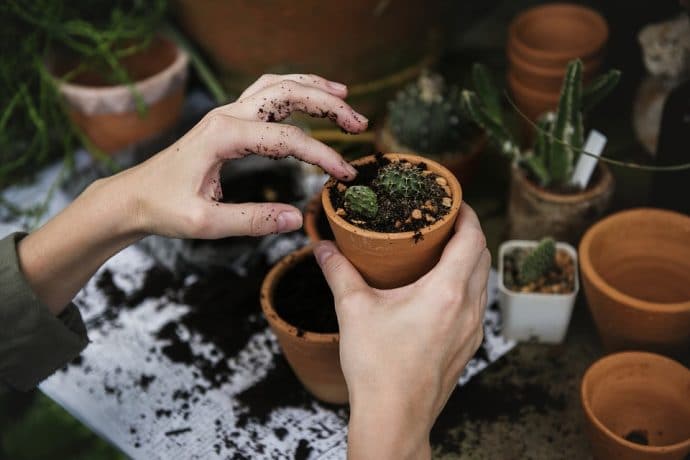Gardens infuse a touch of picturesque and prismatic aura to the surroundings.
The upkeep of these splendiferous structures is vital and requires diligent and timely maintenance. Take a look at some of the ways you can care for your garden.
Mulch Your Garden
As you would do with any family garden, use a robust layer of wood chip about 2 inches in length to secure the perimeter of your garden. You might want to make use of a pine straw if you have a flower or vegetable garden to keep the bad weeds away and the soil well hydrated and moisturized.
Water Regularly
Regular watering is an essential garden care technique that provides the required nourishment to the plethora of plant species living in the structure. Make an effort to check the soil moisture two times during the week and use proper garden tools like a trowel to keep the weed and grime away. To avoid sogginess, always water the plants when the top inch of the soil is dry. This way, the 6 inches of soil at the top will be moist and well hydrated but not soggy. You can get soaker hoses here that will help water get right to the roots, and ensure that water is not lost to runoff or evaporation.
Carefully Examine For Bad Roots
Check for any bad roots and dead patches around plants so that there is no disease that could ruin your garden. A nice idea is to search online for gardening guides that explain what healthy plant species look like and the techniques to properly check for disease-inducing insects, rotten stems and bad roots. Do not purchase any plant with bad stems and sick roots because this can spread to other plants in the garden and take time out to look at the tops carefully including the root quality before you zero in on one.
Look Out For The Bugs
Insects can affect the plants causing damage that might be difficult to restore usually by introducing viruses into the plantation. Aphids and thrips are common carriers that spread impatiens necrotic spot virus amongst others leading to serious plant diseases that can easily spread around. Insects like leafhoppers cause Aster yellows disease that affects a large variety of host plants. In order to avoid these, use proper insecticides and pesticides such as insecticidal soap for aphids and fungicide for fungal diseases. Be careful not to overspray as that can choke your plants. Talk to a gardening expert to find out exactly what quantity to spray, the types to use and the frequency of bug-wash.
Fall Time Is Great For Cleaning Up
Make it a habit to thoroughly clean out your garden in the fall as the weather at this time of the year is feasible for most plants and acts as a strong barrier to insect-infused disease. Inspect your plants every week for pest issues and disease signs or symptoms. Immediately remove any diseased plantation or plants with bad roots; they can severely harm the others in the garden. Also use crop rotation techniques, rotating the plants every year to minimize disease and to boost soil nutrition.

